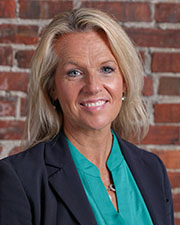1031 - Opportunities to be prudently navigated in order for a productive and successful outcome - by Greg Hill

Prime 1031 Exchanges
Our firm works primarily with helping investors orchestrate and fund tax deferred 1031 transactions. Generally, it may be fine to enjoy a casual outlook with many things, exchanges not being one of them. Useful rules of the road…
• Ascertain your liability posture prior to assuming any course of action.
It is pretty much the math…follow the numbers. Not every potential property sale lends itself to the exchange strategy – every transaction is unique. An analysis to include current adjusted cost basis, depreciation, cost segregation, and other metrics is essential.
• Don’t cut corners. While your brother-in-law or bookkeeper may be a nice person, chances are there are better ways to protect and secure your interests. Hire a competent professional with expertise in real estate and tax law.
You’ll want a specialist, not a general practitioner. Ask questions and find out if he or she knows the drill. Ask for client references, and contact them. It’s always good to verify ahead of engaging them to assure competence.
• Quarterbacking the chain of custody and other required procedures.
Sometimes the devil is indeed in the details. To be compliant the trust or qualified intermediary needs to be a “disinterested 3rd party.” Again, your family attorney or accountant is generally a disqualified entity in this instance. “Constructive receipt” issues can render your exchange non-compliant and trigger an unwanted tax event. Exchange rules are very specific and not open to interpretation. Time is not on your side – a well planned and timely executed implementation is paramount.
• Finding a suitable replacement property solution…a world of choice.
Whether contemplating a fee simple 100% ownership interest or a securitized real estate offering – be it a DST (Delaware Statutory Trust) or the older TIC (tenant in common) structure – do your homework. Search engines on the Internet can yield a treasure trove of useful information. You can delve into the real estate companies as well as the salespeople who market the various programs. Clearly, past performance may not be indicative of future events…but is useful information none the less. The government’s “FINRA - broker check” may provide valuable information to the consumer relative to the salesperson’s background.
• Disruptive innovation refers to an innovation that creates a new market and value network and eventually disrupts an existing market and value network, displacing established market leading firms.
It is occurring in this investment sector and is indeed good news for investors looking for exchange solutions today. Current supply and demand metrics have forced structured replacement property vendors to up their game. They are offering more transparency and reduced fees and mark-ups. This is a much needed and overdue change that bodes well for today’s exchangers.
• What to look for
• What to focus upon
• What worries me
Most investors I work with tend to be graying at the temples, are anxious to unburden themselves from the rigors of active management and are looking for a more passive arrangement without giving up an attractive income stream. Most are looking at preservation rather than accumulation. That being the case, I look for opportunities that are fairly straight forward with a risk index that is quantifiable. Too many moving parts and unknowns are troublesome. I tend to focus on necessities that are not likely to drastically change over the next 5-7-10 years. Medical office and dialysis facilities are two examples. Well placed locales can potentially be attractive and should be considered. I worry about future disruptive models that may continue to destabilize traditional retail metrics in unimaginable ways. Net leased properties with fixed leases in a rising interest rate environment are a ticking time bomb. Additionally, the cost of financing will most likely increase, further squeezing potential cash flows and upsides. Many deals simply will not pencil and won’t be economically viable.
These prep-steps are necessary in getting the exchanger started in the right direction, and can be critical to a productive and successful outcome. Sadly, we have seen firsthand the results of not staying on point while going through the process. It may seem daunting, and sometimes can be, but a properly executed tax deferred exchange is a wonderful planning tool, useful in building and protecting your real estate investment portfolio.
Greg Hill is managing partner at Prime 1031 Exchanges, Saco, ME.
November 2024 NH CIBOR president’s message: 10 tips for commercial real estate investors - by Ethan Ash


The Greater Portland industrial mid-year market update - by Nate Roop

Interest rates and inflation - by Matthew Bacon
As we all know, interest rates have been changing drastically, with movement in both directions, depending on the type and term of financing. The Federal Open Market Committee has taken drastic action in efforts to curb abnormally high inflation, but it hasn’t controlled labor cost growth to the extent that was intended.

Maine multifamily outlook: Opportunities in Portland, Bangor, and Lewiston-Auburn - Blake Wright and Kristie Russell
The multifamily market in Maine’s major cities presents a diverse range of opportunities for investors. We looked at the potential benefits and unique characteristics of three major submarkets in the state: Portland, Bangor, and Lewiston-Auburn. The information below is based on research done in CoStar and county registries, and focuses on multifamily properties that have four or more units.








